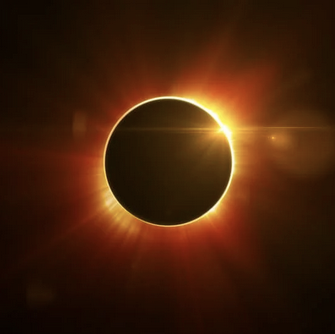
As many of you will know On Monday, April 8, 2024, a solar eclipse will occur when the Moon moves between the Sun and the Earth. Dr. Alex Choi, VCH Medical Health Officer has shared with us the following information to ensure safety during the eclipse:
In the VCH region, this event will be a partial eclipse, expected to start around 10:40am and end around 12:20pm. While it is dangerous to look at the sun anytime, the risk of harm is higher during a solar eclipse because we are more tempted to look, and some of our protective mechanisms that would make us turn away may be less effective due to lower light levels. Even during a partial eclipse, the sun’s intense radiation can cause severe damage to the eyes. It’s crucial to avoid looking directly at the sun during the eclipse, especially for children, as their eyes let in more light to the retina than adult eyes. Young children also may not fully understand the risks or be able to follow safety directives and may require more supervision.
To avoid any risks and as per the recommendations of VCH, schools will be taking appropriate steps during this time. For example, keeping younger students indoors during the eclipse and putting the blinds down. Some classrooms may choose to organise a learning opportunity around this, such as watching the eclipse live online or viewing with a pinhole projector, following recommendations for safe watching.
- Avoid direct viewing: Never look directly at the eclipse under any circumstances.
- Only use safe viewers: Only view the eclipse if you have safe viewers and filters that meet the international standard ISO 12312-2.
- Avoid homemade filters: Do not use homemade filters, sunglasses, ski goggles, camera lenses, smoked glass, photographic film, or x-ray film by themselves or in combination with a binocular or telescope.
- Pinhole projector: If you don’t have eclipse viewers that meet the international standard, create a pinhole projector and focus on the projected image, not the sun itself.
- Always supervise children.
For more information, see:
Canadian Space Agency: How to safely watch a solar eclipse – Canadian Space Agency (asc-csa.gc.ca)
Canadian Association of Optometrists: https://opto.ca/eye-health-library/solar-eclipse-safety
Student Project: How to Make a Pinhole Camera | NASA/JPL Edu

